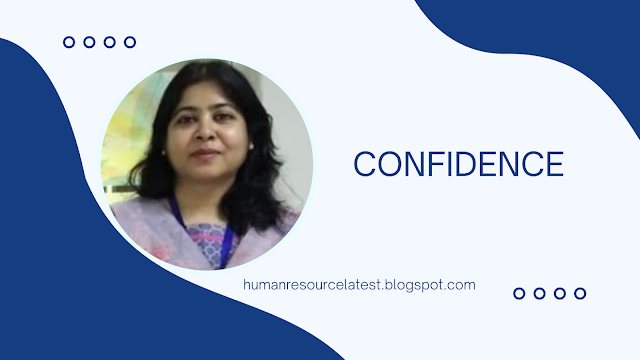What is Self Confidence?
 |
| Self Confidence |
How to build self confidence? What should avoid-
To build self-confidence we need to avoid the following common things from our everyday life-
Overthinking
That’s overthinking – when your brain goes into overdrive, dissecting every little detail of everything you say.
Your mind tries to find flaws from every little thing that you do, even if they probably don’t even exist.
When this happens, you need to remember that life isn’t all about perfection, and it’s okay to go with the flow sometimes.
Because when you overthink everything, you tend to apologize for mistakes you didn’t even make.
Constant apologizing
Saying sorry for things that aren’t your fault.
You might worry that speaking up or taking space is a problem.
But you’re allowed to exist without feeling like you’re in the way.
So save those “sorrys” for when they truly matter.
Comparing repeatedly
Ever looked at someone else’s life and thought yours was less meaningful?
If you catch yourself thinking that, it’s time to take a breath and stop comparing your life to someone else’s.
Remember, everyone’s journey is different. Your path has its own twists and turns that make it uniquely yours. Embrace it!
Feeling Hesitate for decision making
Choosing what to wear or what to eat can become an ordeal when you lack confidence.
You might worry about what others will think, and the fear of making a “wrong” choice can be paralyzing.
But guess what?
Decisions don’t have to be life-changing.
Start with small choices and build up from there. If all else fails, remember to follow your instinct, and it will lead you to the right choice.
Negative self-talk
When you talk to yourself negatively, think about how you would talk to a friend who might be struggling. Would you talk to them the same way you do with yourself?
If the answer is no, take that as a sign that you need to be kinder to yourself.
You deserve kindness, especially from yourself. When that critical voice pipes up, challenge it with something positive.
Avoiding new challenges
New opportunities can be often present themselves as big mysteries, and when your confidence is lacking, the thought of trying something new can be scary.
Likewise, when you encounter a challenge, don’t seek approval for the steps you choose to take to overcome it – trust that you make the best decisions for yourself instead.
Seeking approval
Seeking approval means you’re handing over your power to others’ opinions.
Remember, your thoughts matter, and your unique perspective is valuable. You don’t need anyone’s approval to learn that they are valid.
Fearing rejection
Fearing rejection means avoiding situations where you might not be accepted.
Your worth isn’t determined by someone else’s opinion. Embrace your true self, and the right people will appreciate you for you
Body language signals
Your body might be sending out signals that you’re not feeling confident. Avoiding eye contact, or fidgeting are common signs.
But remember, your body language can also influence how you feel.
Downplaying achievements
Have you ever achieved something cool, only to brush it off like it’s no big deal?
That’s downplaying your achievements.
But you deserve to celebrate your wins, no matter how small.
So don’t downplay your talents as simple skills. They’re feats of strength, and the least you can do for yourself is to own them.

It’s a good article again. Self-confidence is a feeling of own trust in his/her abilities, qualities, and judgment for a given task. Several relevant articles suggest that self- confidence is important to health and psychological well-being of a person. Having a healthy level of self-confidence can help the person become more successful in his/her personal and professional life. Research has found that more confident people tend to achieve more academically and professionally. Healthy eating, relaxation practice, meditation, good-quality sleep has been linked and physical exercise also boosts self-confidence. Please continue publishing this type of article.
ReplyDelete